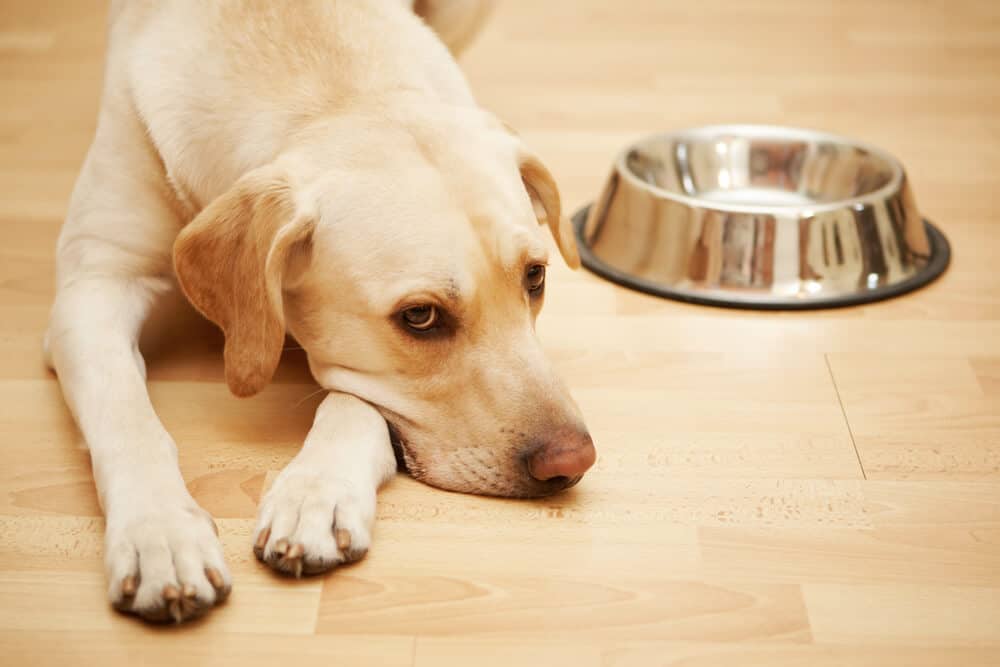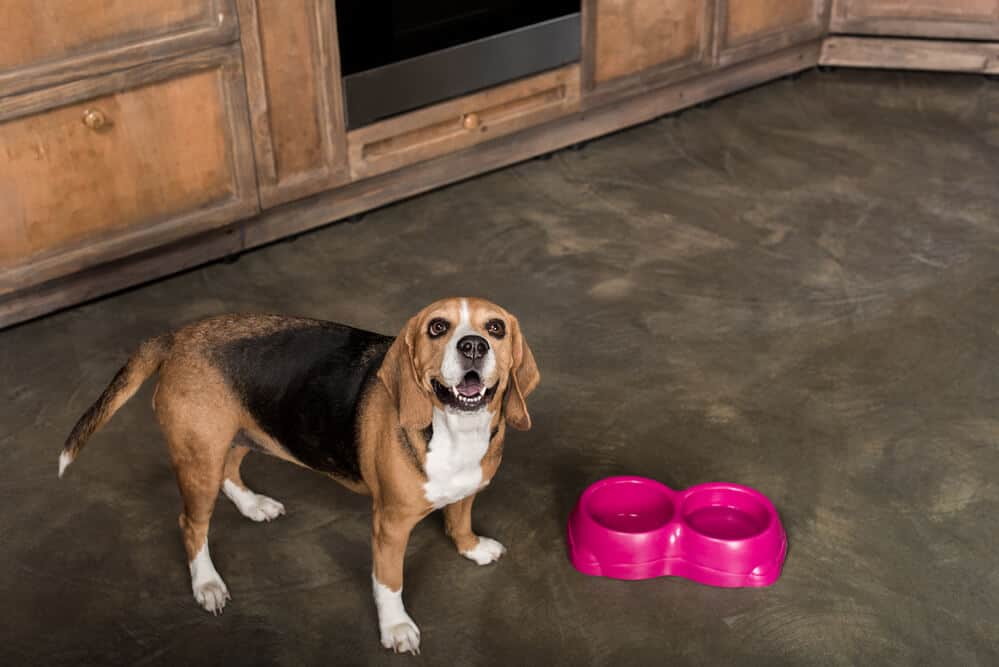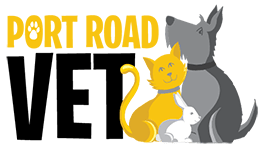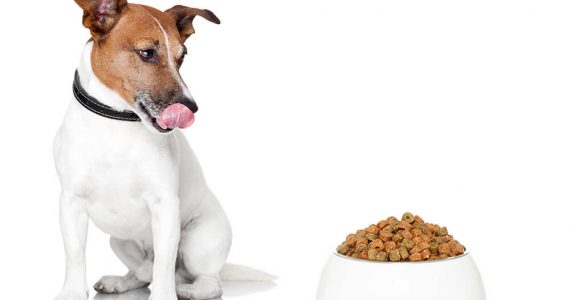Raw food diet for dogs
Raw food diet for dogs
Raw food diets for dogs are a popular topic of conversation in the pet world and more and more people are wondering if they should ditch their commercial dog food and create a bespoke menu for their pets. Whether or not to feed a raw food diet for dogs is a hotly contested issue with many pet owners talking to their vets about finding the right option for them.
What is a raw food diet?
Much like the Paleo movement in human dietary trends, a raw food diet for dogs is based on the theory that dogs would be healthier if they returned to the types of foods eaten by their wild ancestors. Raw food advocates want to give their dogs a healthy, satisfying and interesting diet that improves their quality of life. Modern raw food diets aim to provide balanced nutrition with fresh, unprocessed food sources such as offal, vegetables, fruits and grains.
Why do people feed their dogs a raw food diet?
Those in favour of raw food diets for dogs are concerned about the quality of commercial diets and a perceived link to chronic health conditions in dogs. They argue that the cooking and preparation process destroys valuable proteins and vitamins and that feeding our dogs raw meat allows their bodies to better access key nutrients.
This all sounds great, and there is no doubt that we all want the best for our pets. But it isn’t that straight forward, and feeding your dog a raw food diet comes with a long list of challenges.

What are the possible problems with a raw food diet?
Balanced nutrition:
- Creating a balanced diet for your dog is not a matter of simply throwing some chicken and mince in a bowl. Just like humans, dogs need a wide range of essential nutrients to remain healthy. There is also no one size fits all approach to dog nutrition. Depending on your dog’s breed, age, size and lifestyle, their dietary needs will be unique. Without the aid of a veterinary nutritionist, it can be very difficult to create a diet that meets all of your dog’s dietary requirements.
Parasites:
- Raw meat has the potential to contain parasites that can be bad for your dog’s (and possibly your family’s) health. Cooking kills these parasites and protects your dog from infection. In particular, raw kangaroo meat often contains parasites because kangaroos aren’t raised in controlled farming conditions. The American Veterinary Medical Association does not recommend the feeding of raw or undercooked meat to pets.
Bacterial contamination:
- Just like us, dogs are susceptible to bacterial infections from raw meat that can cause life-threatening vomiting and diarrhoea. Any raw meat including beef, pork, chicken or duck can lead to serious and contagious bacterial infections such as Salmonella, E. coli and Campylobacter. New research from Sweden suggests that raw food diets are a potential health risk for pets and humans, particularly children, the elderly and those who are immunocompromised.
Illnesses:
- Raw food diets also run the risk of making your dog unwell through over feeding of certain ingredients. For example, high quantities of offal (liver) may lead to vitamin A toxicity, while diets high in saturated fat may lead to life-threatening illnesses such as pancreatitis. The WSAVA Global Nutrition Committee also notes that while some pets may tolerate a raw food diet, others may develop concerning problems associated with the high fat, low-fibre diet recommended by raw food advocates.
Toxicity:
- Some foods can be poisonous to your dog. You may already know that onions are toxic but they aren’t the only food in your kitchen that could make your dog sick. Garlic, avocado, grapes, raisins, coconut and coconut oil are among the list of ingredients that can be harmful to your dog. There is a lot of misinformation on the internet about what ingredients to include in a raw food diet for dogs that may be harmful.
Constipation:
- Raw food diets often include bones which can damage your dog’s teeth and lead to constipation. Some severely bone constipated dogs may need surgery.
Bioavailability and digestibility of nutrients:
- One of the main arguments in favour of a raw food diet is the theory that cooking food reduces its nutritional value. This isn’t necessarily the case. In fact, cooking can increase the bioavailability of nutrients to the digestive tract (think potatoes) and make them easier for your dog to digest.
Variety, cost and time:
- Finding a variety of ingredients to meet your dog’s nutritional requirements when feeding a raw food diet can be challenging, costly and time-consuming.

Do you ever need to feed your dog a raw food diet?
There are some medical conditions that may require a specialist diet for your pet. In these instances, a home-cooked or raw food diet for dogs may be appropriate. The best way to make sure your dog is getting all the essential nutrients they need from their diet in these cases is to consult a qualified veterinary nutritionist who can advise you how best to meet your dog’s needs.
Raw food alternatives, keeping it fresh
There are many ways to make your dog’s diet more interesting without having to go to the cost, inconvenience and uncertainty of a raw food diet. After all, we all enjoy spoiling our pets. Puzzle bowls, treat balls, frozen Kongs and snuffle mats can make a game of dinnertime. This has the benefit of making your dogs eat slowly to aid digestion, stimulate their brains to tire them out and create a happy association with food (and you).
Conclusion
We all want what’s best for our dogs and health fads are sweeping through the pet world much like in the human world. A high-quality, well-balanced diet will have a big impact on your dog’s long-term health and happiness and this can be difficult to achieve with a raw food diet. If you have any questions about your dog’s nutrition, our friendly vets are here to help guide you through your options.
Book your furry friend to get a chat about their diet with one of our friendly vets at Port Road Vet today. Contact us on 8340 0388 or book online here.

Director at Port Road Vet Clinic, Dr Kevin Murnane, holds a Bachelor of Veterinary Science from Massey University in New Zealand and is a member of the Australian Veterinary Association (AVA). He is a member of the Veterinary Surgeons Board of South Australia (VSBSA). Raised in rural Ireland, Dr Kevin is a regular attendee to the Webinar Vet and is passionate about providing pet lovers and their pets with friendly veterinary care. He has a special interest in diagnosis management and nonsurgical treatment of unusual serious diseases.

